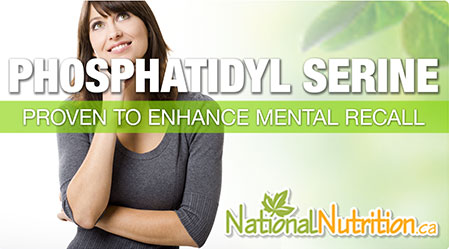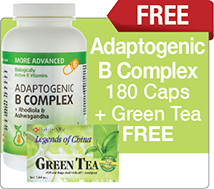
PS has been proven to enhance recall of information
Phosphatidyl Serine (Ps)
Updated Mar. 04th, 2022
Phosphatidylserine (PS) is naturally produced in the brain, although its production dwindles as we age. This molecule is a type of phospholipid, which has with one water-soluble side and one fat-soluble side. These properties allow phospholipids to form a double layer that makes up the outer membrane of each of our cells.
The protective coating of the brain and nerve cells are also composed of phospholipids. Natural health practitioners often recommend PS for Memory, Alzheimer’s disease, Sports Injuries, and even Depression.
Cell Membranes
The contents of each cell in our body is surrounded and protected by a double-layered phospholipid sac. This cellular membrane holds signal molecules and receptors that allow the cell to communicate with the outside world. The more fluid and flexible the cellular membrane, the more easily it can communicate, making each cell more efficient. Also, as each of our cells becomes more flexible, this adds up to increased suppleness and flexibility in our tissues as a whole. This can help to provide healthier supple skin, more flexible muscles and better brain communication.
PS role in cell membranes
Interestingly, PS is usually only found on the inner layer of cell membranes. The cell tightly controls this, until the time comes for that cell to die. When a cell has reached the end of its life, it begins flipping PS to the outer layer of the cell membrane, and this acts as a signal to the immune system that it is time to destroy that cell. Thus, sufficient PS in the body supports proper removal of damaged and aged cells, as well as cancer cells. It also plays a role in triggering blood clotting.
Role in the brain
If the cell membranes of nerves in the brain are not sufficiently fluid, then they cannot effectively transfer information and nerve signals. Over time, this can lead to cognitive decline. Sufficient PS present in the brain cells can result in better cognitive function. PS can also cross the blood-brain barrier to produce the brain chemicals (neurotransmitters) that aid in memory - particularly acetylcholine. It has also been shown to help boost mood in those with mental stress. In general, the brain can produce sufficient PS as it requires, but this production becomes stunted in the absence of sufficient B Vitamins and Essential Fatty Acids. Interestingly, one study found that supplementation with PS can actually improve ADHD symptoms. Further research is required to confirm these results.
Role in the athletic training
Supplementation with PS has been shown to promote faster exercise recovery, and prevent muscle soreness. It has also been shown to support a healthy hormonal balance in athletes, and can help to reduce or prevent some of the side effects of over training.
How can I take PS?
PS supplements are available in capsules. It is naturally present in animal tissues, particularly those from the brain, liver and kidney. Since the more recent mad-cow disease scares, PS for supplemental use is most commonly produced from soybeans. Because of this, individuals with soy sensitivities should not use PS supplements. The recommended maintenance dosage is between 100-300mg daily, although some practitioners may recommend a loading dose of 300-500mg daily for 2 weeks before starting the maintenance dose.






















Great article on phosphatidtyl serine (PS): I never thought about how PS decline in aging could contribute to failure to remove cells that ought to die but it makes all too much sense-thank you for helping me connect the dots from my biology learning here!! I didn't kno that PS had a role in hormonal balance too.
And, I appreciate your practical notes: it's great that PS has no associated toxicity and good to know for practical reasons that Ps should be taken away with food.
Hello Rachel,
Thank you for your comment and insights you gathered from our article on Ps. We're glad you could learn some new information about it and how this effects health. Glad to hear you like the practical notes that we add into our articles.
Happy reading!